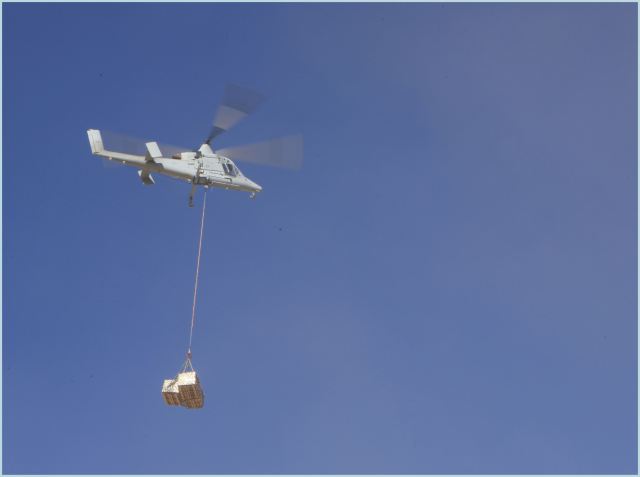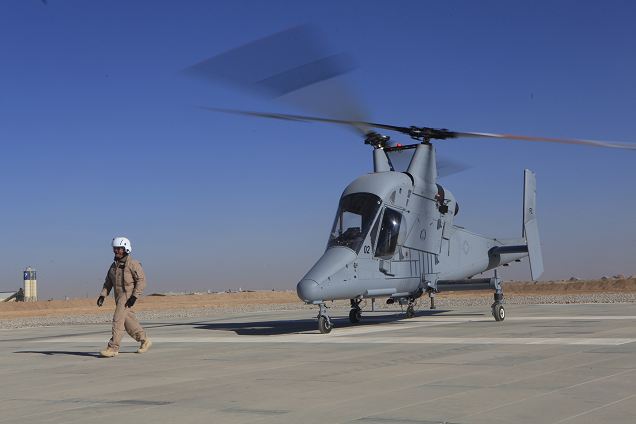Breaking news
K-MAX Unmanned helicopter makes first delivery for U.S. Marines in combat zone in Afghanistan 2412112.
| 2011
| a | |||
World
Air Force News - United States |
|||
K-MAX Unmanned helicopter makes first delivery for U.S. Marines in combat
zone in Afghanistan. |
|||
CAMP
DWYER, Afghanistan -- Unmanned systems have revolutionized combat aviation,
providing a colossal advantage in the fight against terror with surveillance
and close-air support. Recently, a detachment of Marines from Marine Unmanned
Aerial Vehicle Squadron 1 in Afghanistan added aerial resupply to the
list of UAV capabilities. |
|||
 A detachment of Marines from Marine Unmanned Aerial Vehicle Squadron 1 in Afghanistan completed their first unmanned aerial system cargo delivery in a combat zone with the K-MAX, December 17, 2011. |
|||
The
detachment completed its first unmanned aerial system cargo delivery in
a combat zone using a helicopter in Afghanistan, Dec. 17. “We delivered cargo today that was supposed to be delivered by convoy, now that convoy has three pallets that it does not have to carry, “explained Maj. Kyle O’Connor, the officer-in-charge of the squadron’s cargo resupply unmanned aerial system detachment. The unmanned helicopter moved about 3,500 pounds of food and supplies to troops at Combat Outpost Payne. The helicopter, an unmanned variant of a K-MAX, completed the delivery in about an hour and a half. “It is a milestone, certainly. We have delivered a lot of loads in the States during training, testing and evaluation,” said Steven Athanas, a representative from Lockheed Martin. “Now that we have integrated it into the battlespace, we have gone from what you think can happen -- to what can happen.” A human-piloted variant of the K-MAX helicopter was first developed in the 1990s. The manned version is used for heavy-lifting in corporate industry, including logging. “This is a demonstration phase to test the true capabilities of this aircraft and how well it can perform its job in a combat environment,” said O’Connor. “With every flight in theater we are collecting data, and at the end of the day we are going to look at all of that data and decide whether or not to make it a program of record.” “During this phase we will be making some adjustments to make it easier to use, but mostly I think the biggest adjustments will be seeing how many different ways we can use the unmanned aerial system,” said Athanas. At the end of a six month assessment in Afghanistan, the Marine Corps will have the option to fully implement the platform. |
|||
 |
|||


























